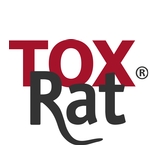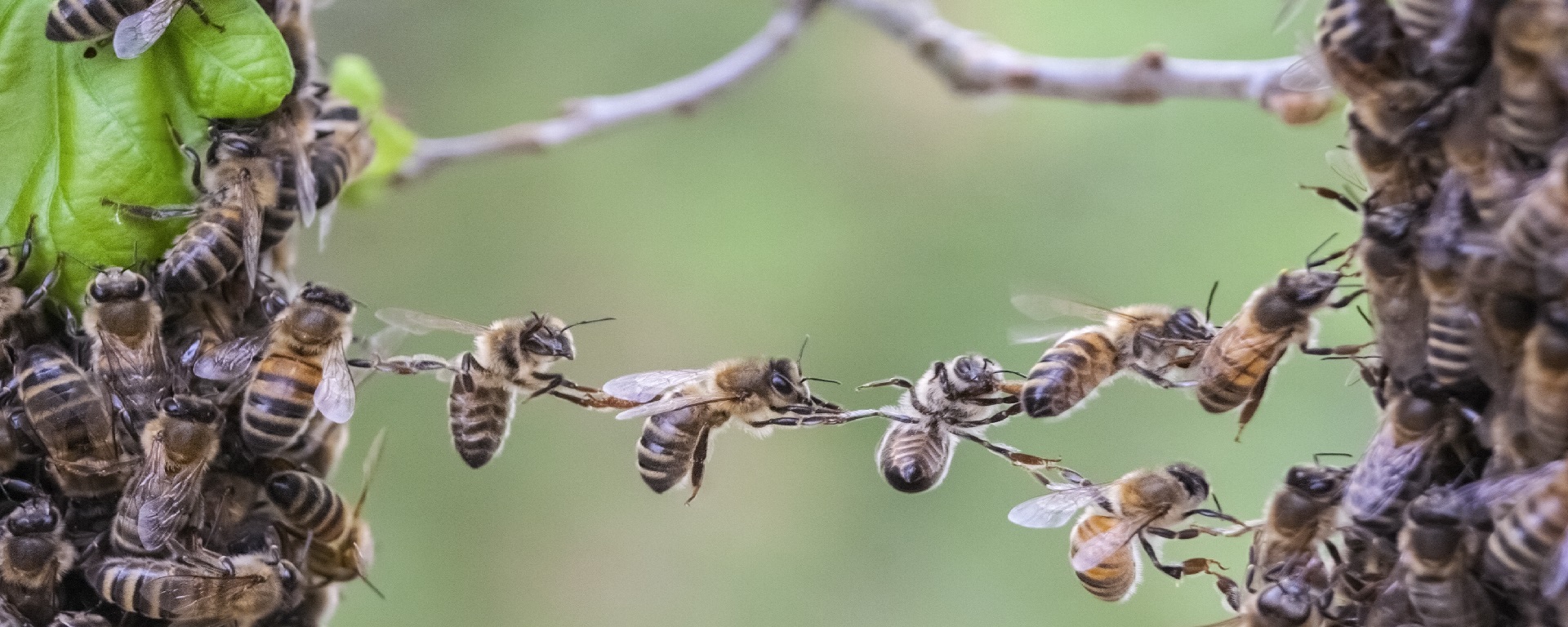Prof. Dr. Hans Toni Ratte
"Programmieren ist für mich wie geistiges Basteln."
Motivation
"Mit dem Aufkommen der Personal-Computer begeisterte mich die Erkenntnis, dass Softwareprogramme in kürzester Zeit Ergebnisse liefern können, für die man mit dem Taschenrechner ein halbes Leben gebraucht hätte. Ich fing an, mich in die Programmierung einzuarbeiten, zunächst nur, um die Auswertung meiner eigenen Experimente zu automatisieren.
Als überzeugter Wissenschaftler und Ökologe ist es mir außerdem ein Anliegen, dass Daten aus biologischen Experimenten im Umweltbereich fundiert und statistisch korrekt ausgewertet werden. Schließlich geht es letztlich darum, belastbare Schlüsse für die Risikoabschätzung zu ziehen. Das hat mich auch motiviert, in Gremien mitzuarbeiten. Dabei war ich oft in der Rolle, den Statistikern die Biologie erklären zu müssen und den Biologen die Statistik. So entstand die Idee, eine Auswerte-Software für Anwender ohne umfangreiche Statistik- und Programmierkenntnisse zu entwickeln.
Ausgleich zum Programmieren finde ich beim Imkern. Die komplexen Abläufe in einem Bienenvolk und die vielfältigen Wechselbeziehungen mit der Natur faszinieren mich - da kommt dann auch wieder der Biologe und Ökologe in mir durch."

Hintergrund
Jahrgang 1946
Biologiestudium und Promotion mit Schwerpunkt Physiologische Ökologie und Genetik an der Universität Köln
Wissenschaftlicher Mitarbeiter am Lehrstuhl für Biologie V (Ökologie), RWTH Aachen
Leitung einer Arbeitsgruppe mit Schwerpunkt Ökologie, Ökotoxikologie und Modellierung.
Habilitation über Kausalanalyse limnischer Lebensgemeinschaften, Ernennung zum außerplanmäßigen Professor
2002 Gründung ToxRat Solutions GmbH
Seit 2011 emeritiert
Ein anlässlich der Emeritierung erschienener Artikel fasst den beruflichen Hintergrund von Toni Ratte zusammen: https://rdcu.be/cE2jA
Lehrtätigkeiten
Quantitative Biologie, Multivariate Statistik in der Ökologie und Ökotoxikologie,
Einführung in die Ökologie, Ökologie und Ökotoxikologie limnischer und terrestrischer Systeme
Grundlagen der Risikobewertung von Umweltchemikalien, Modellierung in Ökologie und Ökotoxikologie;
Leitung der Module “Statistik” und “Aquatische Ökotoxikolgie” im Rahmen des Postgradualstudiengangs Ökotoxikologie der SETAC-GDCh
Diverse Kurse und Seminare bei Firmen, Behörden, auf Symposien.
Arbeit in wissenschaftlichen Gremien (Auswahl)
DIN Arbeitskreis "Biotests" der Gesellschaft deutscher Chemiker, 1993 - 2021
SETAC Experts Meeting in Monkswood, GB (Erstellung des "Guidance document on testing procedures for pesticides in freshwater mesocosms", 1991)
Aquatic Model Ecosystem Advisory Committee (AMEAC, SETAC International von 1992 bis 1994)
Umweltbundesamt-Arbeitsgruppe "Fortentwicklung ökologischer Prüfmethoden im Rahmen der OECD "
Organisationskommitee zum internat. Workshop "Community Level Aquatic Systems Studies Interpretation Criteria (CLASSIC, Juni 1999).- Umweltbundesamt, Fhg Schmallenberg; Mitherausgeber der Proceedings
Statistical Workgroup der International Standardization Organisation (ISO) und der OECD, ab 2000
Ad-hoc Experte der European Food Safety Authority (EFSA), Panel on Plant Health, Plant Protection Products and their Residues, Parma (2 times: 2005 and 2007)
Präsident SETAC-Europe 1998/99
Präsident des SETAC-Europe German Language Branch, 1997/98
Tätigkeiten als Gutachter für diverse Fachzeitschriften
Journal of Environmental Chemistry and Toxicology, Chemosphere, Water Research, Umweltwissenschaften und Schadstoffforschung, Environmental Science and Technology, Oecologia, Journal of Insect Physiology, Verhandlungen der Gesellschaft für Ökologie, Journal Human and Ecological Risk Assessment, Environmental Science and Pollution Research, Toxicological and Environmental Chemistry
Veröffentlichungen (Auswahl)
René Lehmann, Jean Bachmann, Bilgin Karaoglan, Jens Lacker, Glenn Lurman, Christian Polleichtner, Hans Toni Ratte, Monika Ratte (2018): The CPCAT as a novel tool to overcome the shortcomings of NOEC/LOEC statistics in ecotoxicology: a simulation study to evaluate the statistical power. Environ Sci Eur (2018) 30:50
https://doi.org/10.1186/s12302-018-0178-5
René Lehmann, Jean Bachmann, Bilgin Karaoglan, Jens Lacker, Christian Polleichtner, Hans Toni Ratte, Monika Ratte (2018): An alternative approach to overcome shortcomings with multiple testing of binary data in ecotoxicology. Stochastic Environmental Research and Risk Assessment, 32, 213-222
René Lehmann, Jean Bachmann, Dirk Maletzki, Christian Polleichtner, Hans Toni Ratte, Monika Ratte (2016)
A new approach to overcome shortcomings with multiple testing of reproduction data in ecotoxicology. Stochastic Environmental Research and Risk Assessment, 30 83), 871-882
Preuss TG, Hammers-Wirtz M, Hommen U, Rubach MN, Ratte HT (2009): Development and validation of an individual based Daphnia magna population model: The influence of crowding on population dynamics. Ecological modelling, 220, 310-329
Floeter C, Ahlf W, Ratte HT (2008) Entwicklung von ökotoxikologischen Instrumenten und ihre rechtliche Implementierung zur marinen ökologischen Risikobewertung von Chemikalien, Pestiziden und Baggergut Umweltwiss Schadst Forsch (2008) DOI 10.1007/s12302-008-0027-z
Siehoff S, Preuss TG, Ratte HT, Roß-Nickoll M, Lennartz G (2008): The GraS-Model (Grassland-Succession-Model) - A simulation model for the succession of grassland biotopes under various management regimes (developed for the Eifel National Park). Extended Abstract. SER 6th European Conference on Ecological Restoration, Ghent, Belgium.
Ratte HT (2007): Ökotoxikologie: 'Ecospeak' oder Wissenschaft? Versuch einer politischen und wissenschaftlichen Standortbestimmung. UWSF – Z Umweltchem Ökotox 19, Sonderheft Nr. 1, 1–5
Ratte HT, Lennartz F, Roß-Nickoll M (2005): Ecosystem dynamics and stability - are the effects of pesticides acceptable? In: Liess et al. (eds.) Effects of pesticides in the field - EPIF, SETAC - Press, 88-90.
Brock T.C.M and Ratte H.T. (2002) Ecological Risk assessment of pesticides. In: Giddings J.M.; Brock T.C.M.; Heger W.; Heimbach F.; Maund S.J.; Norman S.M.; Ratte H.T.; Schäfers C. and Streloke M. (eds) Community Level Aquatic System Studies - Interpretation Criteria. Society of Environmental Toxicology and Chemistry (SETAC), 2002, ISBN 1-880611-49-x, pp 33-39.
Giddings J.M.; Brock T.C.M.; Heger W.; Heimbach F.; Maund S.J.; Norman S.M.; Ratte H.T.; Schäfers C. and Streloke M. (2002): Community Level Aquatic System Studies - Interpretation Criteria. Society of Environmental Toxicology and Chemistry (SETAC), pp. 43, ISBN 1-880611-49-x
Ratte H.T. (2002): Statistik für ökotoxikologische Testverfahren. In: Fomin A., Markert B.A., Oehlmann, B (Hrsg.): Praktikum zur Ökotoxikologie. Ecomed Verlagsgesellschaft, Landsberg, Germany, 250 Seiten.
Ratte H.T., Hammers-Wirtz M., Cleuvers M. (2002): Ecotoxicity testing. In: Markert B.A., Breure A.M., Zechmeister H.G. (eds): Bioindicators and biomonitors. Elsevier Science B.V., pp. 221-255.
Hammers-Wirtz, M. and H.T. Ratte (2001): Offspring fitness in Daphnia: Is the Daphnia reproduction test the appropriate test to extrapolate effects on the population level? Environ Toxicol Chem, 19:1856-1866.
Ratte H.T., Hammers-Wirtz M. (2001): Does risk mitigation needs also modified approaches in toxicity testing? Mitt. Bio. Bundesanst. Land- Forstwirtsch. 383:21-24.
Ratte H.T. (1999): Bioaccumulation and Toxicity of Silver Compounds. Environ. Toxicol. 18: 89-108.
Ratte H.T. (1996 b): Statistical implications of endpoint selection and inspection interval in the Daphnia Reproduction Test - a simulation study. - Environ. Toxicol. Chem. 15, 1831-1843
Hommen U. and H.T. Ratte (1994): Application of a plankton simulation model on outdoor-microcosm case studies .- In: Hill, I.R., F. Heimbach, P. Leeuwangh, and P. Matthiessen (eds) Freshwater Field Tests for Hazard Assessment of Chemicals. Lewis Publishers, Michigan, USA, pp. 493-502
Hommen U., U. Dülmer, and H.T. Ratte (1994): Monte-Carlo simulations in ecological risk assessment. Proceedings of the Anniversary Conference of the Wageningen Agricultural University 'Predictability and Non-linear Modelling in Natural Sciences and Economics, Kluwer Dordrecht, pp. 460-470
Ratte H.T., H.J. Poethke, U. Dülmer, and U. Hommen (1994 a): Future Developments in the Field of Ecological Effects Modelling. - In: Stebbing, A.R.D., K. Travis, and P. Matthiessen, (eds) Environmental Modelling - the Next 10 Years, SETAC Special Publication; ISBN 09522535 0 X; pp. 18-21
Ratte H.T., H.J. Poethke, U. Dülmer,. and U. Hommen. (1994 b): Modelling of Aquatic Field Tests for Hazard Assessment. In: Hill, I.R.; Heimbach, F; Leeuwangh, P. and Matthiessen, P. (1994) Freshwater Field Tests for Hazard Assessment of Chemicals. Lewis Publishers, Michigan, USA, pp. 399-424.
Hommen U., H.J. Poethke, U. Dülmer and H.T. Ratte (1993): Simulation models to predict ecological risk of toxins in freshwater systems. ICES J. mar. Sci. 50, 337-347.

